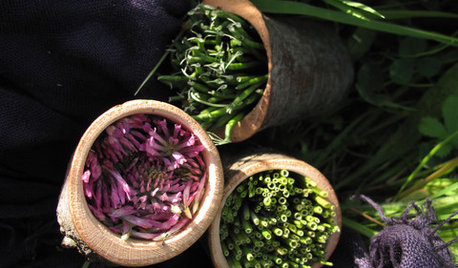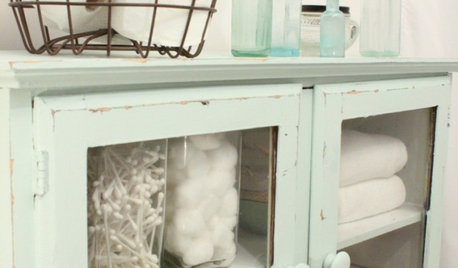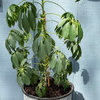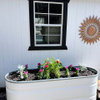organic fertilizers in a soiless mix, not good?? Help
sissysimone
16 years ago
Related Stories

GARDENING GUIDESGet on a Composting Kick (Hello, Free Fertilizer!)
Quit shelling out for pricey substitutes that aren’t even as good. Here’s how to give your soil the best while lightening your trash load
Full Story
GARDENING GUIDESHow to Switch to an Organic Landscape Plan
Ditch the chemicals for a naturally beautiful lawn and garden, using living fertilizers and other nontoxic treatments
Full Story
ORGANIZINGGet the Organizing Help You Need (Finally!)
Imagine having your closet whipped into shape by someone else. That’s the power of working with a pro
Full Story
ORGANIZING4 Questions to Help You Organize Your Favorite Photos
Organize your keeper photos with a system that's just right for you, whether it's in the cloud or you can hold it in your hand
Full Story
GARDENING GUIDESHow to Keep Your Citrus Trees Well Fed and Healthy
Ripe for some citrus fertilizer know-how? This mini guide will help your lemon, orange and grapefruit trees flourish
Full Story
GARDENING GUIDESThe Poop Scoop: Enrich Your Soil With Good Old Manure
Get over the ick factor already — this natural super-ingredient for soil has so many benefits, you'll wonder why you ever went chemical
Full Story
REMODELING GUIDESKey Measurements for a Dream Bedroom
Learn the dimensions that will help your bed, nightstands and other furnishings fit neatly and comfortably in the space
Full Story
EARTH DAYHow to Help Your Town’s Beneficial Birds and Bugs
Make a habitat using local materials to provide a home to the creatures that help our gardens
Full Story
LIFEDecluttering — How to Get the Help You Need
Don't worry if you can't shed stuff and organize alone; help is at your disposal
Full Story
MOVINGRelocating Help: 8 Tips for a Happier Long-Distance Move
Trash bags, houseplants and a good cry all have their role when it comes to this major life change
Full Story




justaguy2
tapla (mid-Michigan, USDA z5b-6a)
Related Discussions
soiless mix
Q
fertilizing organic potting mix
Q
need to know about mixing organic fertilizer
Q
Mixing chemical and organic fertilizer
Q
sissysimoneOriginal Author
sissysimoneOriginal Author
justaguy2
tapla (mid-Michigan, USDA z5b-6a)
gree_knees
vanillalotus
justaguy2
justaguy2
greengrass12
emgardener
rhizo_1 (North AL) zone 7
rootdoctor
meyermike_1micha
justaguy2
meyermike_1micha
brinn
tapla (mid-Michigan, USDA z5b-6a)
brinn
tapla (mid-Michigan, USDA z5b-6a)
gree_knees
tapla (mid-Michigan, USDA z5b-6a)
mercygarden
buzzsaw8
tapla (mid-Michigan, USDA z5b-6a)
jeremyjs